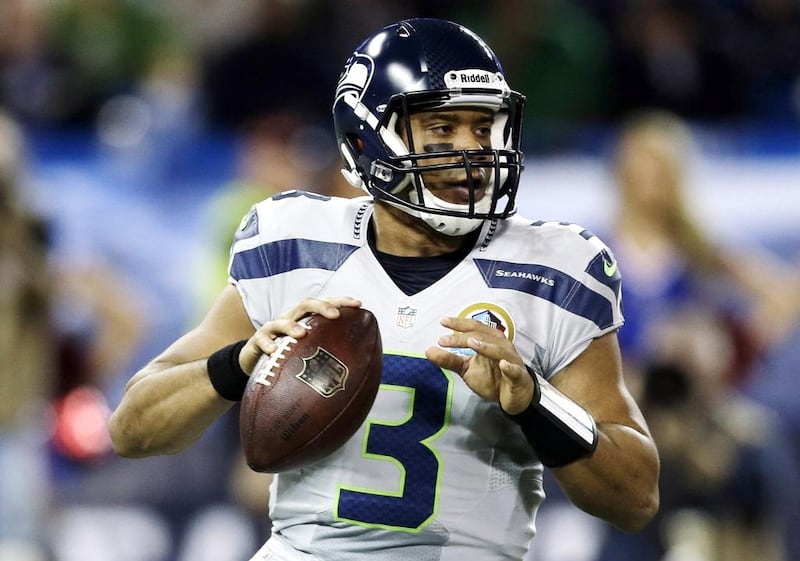With a record 102 early entrants declaring for this NFL draft, the depth of talent is obvious. Quarterbacks are no exception, with a trio of potential top-10 picks and another half-dozen or so prospects projected as viable mid-round options.
This ought to be an ideal scenario, then, for teams in this pass-driven league missing a long-term solution at the most important position in the sport.
So why is taking a Blake Bortles, Teddy Bridgewater or Johnny Manziel at the start of Thursday night’s proceedings not a slam dunk?
While more media coverage is a factor in Bortles, Bridgewater and Manziel being poked and prodded to near-pulp, all of them left college early. Bortles brings the least experience out of Central Florida. Bridgewater, from Louisville, has shown accuracy problems. Manziel is relatively short, and his well-documented exploits at Texas A&M raised concerns about maturity.
“I don’t think they’re physically ready. I don’t think they’re far along mentally. I think they might be a work in progress for six months or a year,” said ESPN analyst and former NFL head coach Jon Gruden, considered a quarterbacks guru.
Minnesota Vikings general manager Rick Spielman, one of those executives under pressure to find the right guy, described the pre-draft scheming as “torturous”.
“Nothing is a sure thing. There’s no Andrew Luck, no Peyton Manning. It is such a mixed bag with each player. Every one of them has positives. Every one of them has negatives. And if that’s the way you end up feeling, why don’t you just wait ‘til later in the draft and take someone with the first pick you’re sure will help you right now?” Spielman told SI.com.
Spielman could well have been trying to smokescreen his desire to select one of the quarterbacks with the eighth overall pick, but there was surely some truth to his explanation.
With his own disappointment over Christian Ponder (the 12th choice in 2011), Spielman will be wary of taking a quarterback so high again – if there are significant questions about the player’s skill set.
Is this truly the hardest position on the roster to draft and develop successfully? Or are the mistakes simply more magnified because the profiles of quarterbacks are so high?
“It’s a tough position to play. So drafting it, getting it right? If anyone had the answer, they’d be doing it,” San Francisco 49ers general manager Trent Baalke said.
Ryan Grigson, the Indianapolis Colts general manager, added: “All you have to do is look at the play-offs. Quarterback play is a huge, huge part of winning play-off games.
“We’re very fortunate and blessed to have Andrew Luck and what he brings to the table. Because great quarterbacks don’t come along all that often and if you don’t have one, you’re going to have to bolster every other facet of your team to be able to get on the level of a team that has a great one.”
Over the last 10 drafts, 28 quarterbacks have been taken in the first round, including 16 in the top 10 picks and seven first overall.
Though Eli Manning (first, 2004) and Ben Roethlisberger (11th, 2004) account for two Super Bowl rings each, only four of the 28 first-rounders have won championships. Aaron Rodgers (24th, 2005) and Joe Flacco (18th, 2008) are the others.
Just 10 of the 28 have been picked for a Pro Bowl.
Here’s the flip side of the story: Most of the elite quarterbacks come from the top of the draft, so waiting for a Tom Brady, Drew Brees or Russell Wilson in later rounds is far from a tried-and-true strategy. Those are the only three Super Bowl winners of the last 10 who came after the first round.
“First and foremost, he has to be a ‘guy.’ He has to have the locker room. He has to walk into the meeting room and make the players know, ‘Hey, this guy’s got us. He’s got it.’ That character aspect,” said Seattle Seahawks general manager John Schneider, whose selection of Wilson in the third round in 2012 helped spark the team to a title.
The environment in which the drafted quarterback enters has a lot to do with success, too. Teams that don’t have to force a player into action before he’s ready will often benefit from the patience. Quarterbacks with savvy offensive coordinators and position coaches can glean a lot about the game they did not gain in college.
Those teams still searching for the solution must keep spinning the wheel, feeling perhaps a little more pressure during the draft next week than those who have theirs.
“You’re going to make some mistakes,” Jacksonville Jaguars coach Gus Bradley said, “but you hope it’s limited, and especially at that position.”
Follow us on Twitter @SprtNationalUAE





